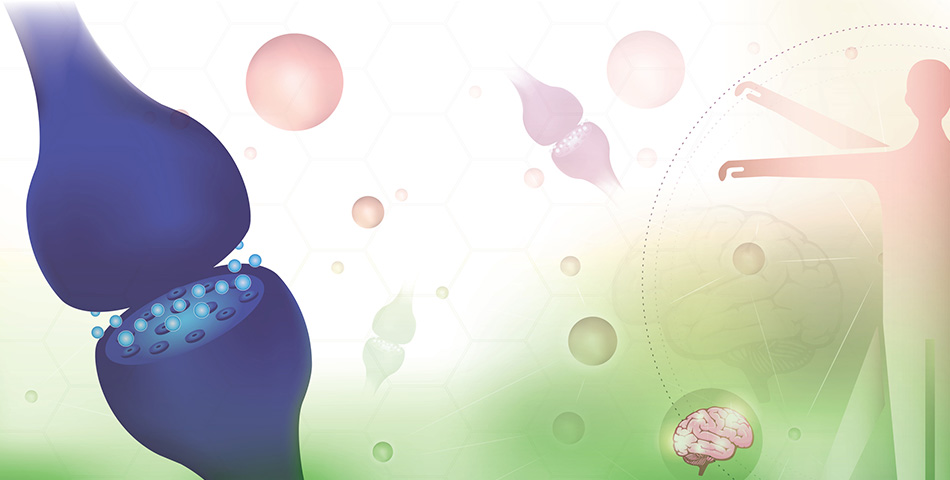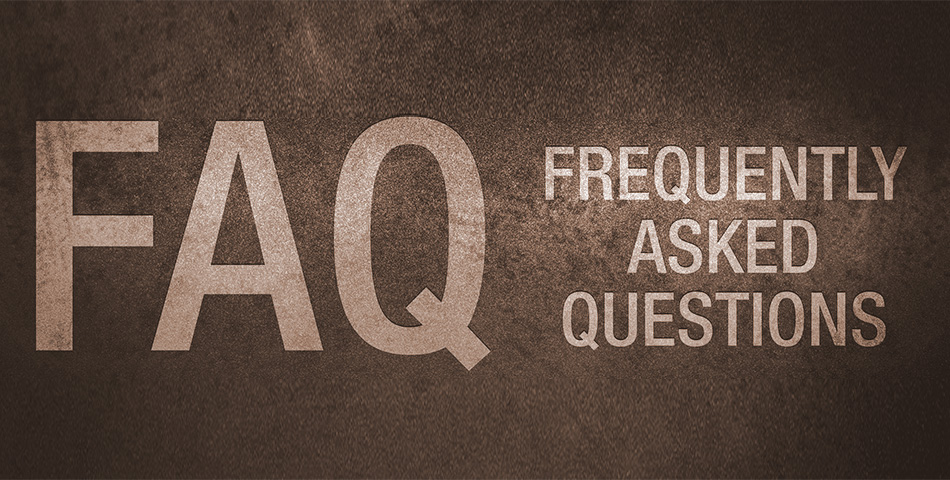Cannabis has been used for thousands of years.
But . . . perhaps you already knew that. Perhaps you’ve already heard about ancient China’s hemp textiles or ancient Scythia’s burial ceremonies.
As important as these historical practices were, ancient cultures were onto something even more basic. Though they didn’t fully realize it at the time, many of them came to know and love cannabis for its beneficial effects on the immune system. For reasons that will become clearer below, the ancients sought out cannabis because the biological systems within their bodies—immune system included—craved CBD. And this historical use of cannabis has implications for our use of CBD and hemp today, precisely because ancient cannabis cultivars were actually richer in CBD and lower in THC than modern-day varieties.
So . . . how does CBD oil affect the immune system? We’ll take a long and winding road en route to answering that one, only because this is a nuanced topic that deserves to be fully explained.
Let’s start with the basics before progressing into how CBD could benefit your immune health. But first, an outline . . . if you’re short on time, feel free to skip ahead to the “Quick Hits” section!
What Is the Immune System?
The immune system is an intricate network of cells, structures, and processes that work together to monitor any inputs that enter our bodies (think viruses and bacteria). The immune system keeps us safe from foreign invaders of all types. And though we might take them for granted . . . without our immune systems, we wouldn’t last long.
In order to accomplish what it does, the immune system has to get pretty complex. It’s present throughout specialized immune cells in the skin, bloodstream, lymph nodes, thymus, spleen, and mucus membranes. But the very most important part of the immune system is probably its white blood cells.
Also called leukocytes, there are two types of white blood cells: lymphocytes and phagocytes. Lymphocytes are made in the lymphoid system and can be further divided into two types: T-cells, and B-cells. Phagocytes are made in the bone marrow.
One more thing: we actually have two different subsets to our immune systems. There’s the innate part, which we’re born with, and the adaptive part, which learns its lessons and kicks in to fight disease along the way. Finally, a significant part of our immunity lies in our digestive tract, where it’s controlled by microbes that, literally speaking, aren’t even us!
The main point of all this is simple: our bodies have many ways to produce immune-boosting substances.
And what these substances do is equally straightforward: they kill threatening-looking cells. Did you know our bodies produce countless cancer cells every single day, simply as a byproduct of normal metabolism? Thanks to your immune system, this isn’t something you have to worry about.
Like many natural systems, the immune system must keep itself in careful balance. It constantly oscillates between too much apoptosis (i.e., cell death) and too little. We call cases of overactivity autoimmune disease, and under-activity can be just as harmful.
But, thanks in large part to our body’s other built-in modulators, the immune system usually manages to keep itself in balance.
Immunity and Endocannabinoids: A Surprising Pair

Mammals have one built-in modulator that stands apart from the rest. We talk about it fairly often around here—it’s the endocannabinoid system!
Indeed, leading scientists have discovered that the endocannabinoid system and immune system actually communicate with each other. Even better, the endocannabinoid system, which has been described by renowned neurologists as our body’s “central homeostatic regulator,” might be the guiding force that keeps downstream immune functions intact.
The ubiquity of sensitive endocannabinoid receptors makes this possible: they’re present throughout virtually all parts of the body, including the immune system. A 2017 study described how the spleen, a critical part of the immune system where white blood cells are housed, is also home to an especially large amount of CB2 receptors. Those are the very receptors to which CBD binds.
Need a Boost? Your ECS Could Help
Just as impressively, our endocannabinoid system may assist the immune system when extra help is needed, as in cases of acute disease. A slightly older study affirmed that “CB2 . . . clearly participates in immune homeostasis and responses to pathogens.” The endocannabinoid system seems to ‘know’ when the immune system needs a boost, as evidenced by the fact that CB2 receptors increase in prevalence and density in those with immunity problems like MS.
But with more CB2 receptors comes a problem: a higher demand for endocannabinoids.
For those unfamiliar, endocannabinoids (eCB’s) are basically the currency of full-body balance! These little signaling molecules are produced by cells on demand and actually travel backward across synapses. When they reach their destinations, they’re able to make other cellular messengers more aware of things. This unusual mode of action is called retrograde signaling.
As effective as endocannabinoids usually are, the system they belong to isn’t perfect. Chronic problems with immunity may occur when endocannabinoid levels stay low for too long. Thankfully for us, that’s exactly where the function of plant cannabinoids begins . . .
CBD vs. Inflammation
Did you know CBD is classified as an antioxidant? The US government actually has a patent on CBD’s antioxidative properties. According to the patent, CBD presents a “method of treating diseases caused by oxidative stress, comprising administering a therapeutically effective amount of a cannabinoid . . . to a subject who has a disease caused by oxidative stress.”
What does this have to do with inflammation? A lot, actually, because inflammation is often caused by oxidative stress. These two go hand in hand—and they can both wreak havoc on one’s immune system.
But CBD could help, largely because it binds to the CB2 receptors we talked about earlier. These receptors aren’t expressed only in response to illnesses; they’re elevated by chronic inflammation, too. When it comes to how the body deals with stress, things tend to be quite interrelated.
One major way CBD may reduce inflammation is seen through its effect on a family of substances called cytokines. Cytokines are proteins produced by the immune system to boost the immune response. Like the insulin secreted after a big meal, transient increases in cytokine levels are a good thing.
But many cytokines, like interleukin 6 (IL-6), are too inflammatory to stick around for long. CBD may be able to lower IL-6 levels; one study found that “CBD treatment was able to decrease the serum levels of all analyzed cytokines.” This has led researchers to wonder if it could help those with diseases marked by out-of-control interleukin levels, like asthma. Only time will tell—for now, we can safely view CBD as a general antioxidant and anti-inflammatory.
Could CBD Help Your Immune System?

So, could CBD boost your immune system?
The answer isn’t all that simple . . . and might actually depend on what you mean by “help.” Let’s address the things we’re most certain of first.
Key Concept #1:
Most cannabinoids (endocannabinoids and phytocannabinoids like CBD included) have an important role to play in immune function: they help the endocannabinoid system maintain its retrograde-style feedback loops!
And when this type of ‘biofeedback’ comes through clearly enough, the immune system is better able to sense what’s going on. By being nourished with cannabinoids, the immune system may stand a better chance of staying balanced.
Key Concept #2:
Cannabinoids like CBD may help B cells function at full power. B cells are immune cells that produce antibodies that contribute to one’s overall immune response; they’re a crucial part of the adaptive immune system that combats foreign invaders.
When it comes time for the body to produce more B cells, cannabinoids come to the rescue yet again. They may strengthen the endocannabinoid system, which in turn helps B cells migrate to where they’re needed most!
Key Concept #3:
CBD may be able to calm down an overactive immune system.
If you take anything away from this article, realize that balanced immunity is best—and our body’s favorite balance-keeper is surely the endocannabinoid system. CBD may reduce many immunity and inflammatory markers, like the interleukins and cytokines we talked about earlier. It may also reduce the neurological inflammation produced by an overly strong immune response.
Both CBD and THC have many immunosuppressant properties. Remember the immune system’s major role in killing harmful cells? If it gets a little zealous, cannabinoids may step in and trigger apoptosis (i.e., cell death) in these ‘bad’ cells. “At the optimal concentrations, cannabinoids . . . induce apoptosis in immune cells, alleviating inflammatory responses,” a 2010 review affirms.
CBD vs. Autoimmune Diseases
Autoimmune diseases basically happen when one’s immune system gets confused and persistently attacks itself. It’s a case of too much activity, for too long, directed against the wrong enemy. And depending on where one’s immunity goes haywire, different autoimmune conditions can result. If there was ever a case where immunosuppression is needed . . . this is it.
And while it’s still not known exactly what produces this type of misfire, both genetic and epigenetic forces seem to contribute. While one can’t do much about their genetics, compounds like CBD are likely beneficial to the epigenetic side of things, which is where genes are actually turned on or off. CBD seems to act as a biochemical limiter whenever the genetic origins of one’s immune function start to run haywire. It’s been shown to reduce T cell and B cell activity, but only when such effects are needed. Cannabinoids like CBD may also assist the immune system’s ‘memory cells’ to remember the right things—and possibly stop attacking the rest.
All these stats testify to one thing: the immunity-regulating effects of cannabinoids are among their most proven. Maybe that’s not surprising when one zooms out to consider how natural products work. “Immunomodulatory herbs offer a very beneficial strategy to [improve] autoimmune conditions,” explains botanical expert Kevin Spelmen to Fundacion Canna.
Quick Hits
Why Use CBD Oil to Help Your Immune System?
There are many good reasons. In addition to all the above, CBD is selective. While most research up until recently indicated that CBD suppressed the immune system, the compound is actually much more conditional than that. In some cases, it may heighten immune function.
What makes CBD so selective? Probably its impact on the body’s highly selective endocannabinoid system (ECS). These receptors are able to flux and adapt their own levels to the body’s internal demand. Indeed, endocannabinoid receptors of all types can be found throughout the entire immune system. If the ECS is healthy, it may prevent the immune system from overreacting to viral threats.
The Best Way to Take CBD Oil to Boost Immunity
What’s the best way to take CBD oil? It’s simple: whatever way allows you to take it most consistently! For most people, that means taking CBD twice per day (although some may wish to take a microdosed approach ). As always, CBD is absorbed best when it’s taken sublingually and held under the tongue. Bonus points for those who take CBD alongside potential absorption boosters!
The Best Dosage to Boost Immunity
For the average healthy person, taking CBD for immune health may be as simple as taking a low maintenance dose of CBD oil twice a day. For those with immune conditions, higher dosing in the 5-50 milligram per kilogram of bodyweight range may be ideal, at least until things are ‘back under control.’
The Best Types of CBD Oils to Boost Immunity
In general, the most premium CBD oils will also be the ones that most effectively boost immunity. Full Spectrum CBD oils will be up to four times more effective than CBD isolate, and nano CBD will be more effective than the regular fat-soluble variety. Other than that, all the normal quality metrics apply: CBD oils that are organically grown, cleanly extracted, and extensively lab tested remain the best way to go.
Frequently Asked Questions

How does CBD affect your immune system?
CBD appears to regulate the immune system and bring things back into homeostasis. In those with hyperactive immune systems (autoimmunity), CBD may act as a much-needed immunosuppressant. It’s not yet clear if CBD suppresses the immune system of healthy individuals, and in some cases, CBD may actually strengthen the immune response.
If CBD inhibits T-cells, wouldn’t it hurt the immune system?
That’s what you might think—the world’s leading cannabinoid researchers thought that for a while, too. But there’s a method to CBD’s madness, and it seems to inhibit T cell function either transiently or in cases where such inhibition is needed, as with autoimmune issues.
So . . . what will CBD actually do for my immune system?
If you’re already fully healthy (congrats!), then we’d encourage you to view CBD use as part of your daily defense, as a preventative measure. It may ensure your systems stay balanced just right. And if you ever do get sick, CBD may reduce the risks associated with acute immune problems like the cytokine storm.
If you have autoimmune conditions, CBD may allow you to experience relief from certain symptoms. Those with rheumatoid arthritis may find relief from their chronic pain; those with MS may get some mobility back. As always, we can’t make any medical claims, and your mileage may vary.
So consider trying CBD for yourself—your immune system will probably thank you, but the exact implications of that are yet to be seen.
To Your Health,
Green Maiden




